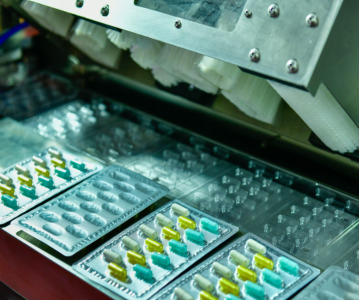Monkeypox Update: Vaccine shortage, sewage surveillance and global testing

As concern over the monkeypox outbreak continues to rise, we take a look at major developments from the first week of August.
More than 80 countries where monkeypox is not endemic have reported outbreaks of the viral disease, which the World Health Organisation has declared a global health emergency. Confirmed cases have crossed 27,800 and non-endemic countries Brazil, India and Spain have reported their first deaths from the virus.
Vaccine shortage
On Tuesday, US health officials authorised a plan to stretch out the country’s limited supply of monkeypox vaccine by giving people just one-fifth of the usual dose. The dose-sparing approach calls for intradermal injection of the Jynneos (also known as Imvanex) vaccine just under the skin instead of a full dose into the underlying fat — a practice that may improve immune response. Recipients would still get two shots spaced four weeks apart.
This unusual measure is being taken to supplement the country’s shortfall in vaccine doses. Currently, the US has just 440,000 doses available, which increases to 2 million if the dose-sparing method is used.
Robert Fenton, the White House’s monkeypox response coordinator, told reporters: ‘It’s safe, it’s effective, and it will significantly scale the volume of vaccine doses available for communities across the country.’
European officials are now considering whether to follow suit, given spiraling case numbers on the continent. Speaking to Reuters, a spokesperson for the European Medicines Agency said the agency would ‘discuss the approach’ with Bavarian Nordic, who makes the vaccine, as well as individual member states.
Sewage surveillance
A team of researchers who used wastewater surveillance to track the incidence of COVID-19 is now turning their attention to monkeypox.
Surveillance and testing of sewage water has long held promise for the early detection of health threats but had limited applications before the COVID pandemic. In the US, such risk monitoring was largely confined to academic projects.
When COVID-19 emerged, a research group made up of scientists at Stanford University, the University of Michigan, and Emory University pioneered efforts to recalibrate surveillance techniques for detection of the virus, marking the first time that wastewater has been used to track a respiratory disease.
This research team, the Sewer Coronavirus Alert Network, is now expanding wastewater monitoring to detect monkeypox in the US.
Test kits
SaaS company WeTrade Group has struck a strategic partnership with Jiqing Biomedical Technology to produce monkeypox virus test kits and antigen tests.
Jiqing, a Chinese biotech focused on medical research and experimental development, created an antigen self-test kit for COVID-19 which was granted EU approval. With the emergence and spread of monkeypox, Jiqing developed a nucleic acid RT-LAMP test and a colloidal gold technique antigen test.
Working with Jiqing, WeTrade Group will leverage its digital tools to rapidly bring monkeypox virus test kits to market with the power of YCloud, a cloud intelligent system for microbusinesses, and its industry accumulation in computer technology and big data.
Therapeutics
SIGA Technologies confirmed this week that it will deliver $26 million worth of an intravenous formulation of smallpox drug TPOXX to the United States in 2023, after the US government elected to exercise certain procurement options.
Oral and intravenous formulations of TPOXX are approved by the US FDA for the treatment of smallpox, but not yet monkeypox. However, the US CDC provided guidance for its use under expanded access as an investigational drug.
The IV treatment will be a vital option for patients unable to swallow the oral pill as monkeypox symptoms include rashes and blisters in the mouth.
For more information on the global monkeypox response, read our recent feature: Vaccine industry must help fight monkeypox and secure supply chains
Related News
-
News A Day in the Life of Oncology Start-Up Co-Founder & CEO
This Women's month we are highlighting stories of women in the pharma industry (building on what we do every month to support women), so for the Day in the Life of we are speaking to Sharon Cunningham who is the Co-founder and CEO of Shorla On... -
News Women in Pharma: Manufacturing personal and team success
Our monthly Women in Pharma series highlights the influential lives and works of impactful women working across the pharmaceutical industry, and how the industry can work towards making the healthcare industry and workplace more equitable and inclusive... -
News A Day in the Life of a Head of Market Insights in med devices
The latest interview in the Day in the Life of Series is with Alper Hulusi, Head of Market Insights for ClariMed. Hulusi also works to try to get to know people, this time from the other side of pharma – the people that will be using the the... -
News CPHI Podcast Series: Packaging expert perspectives at Pharmapack 2025
This month's podcast episode sounds a little different, covering the latest event in Paris – Pharmapack 2025. Digital Editor Lucy Chard speaks to several experts direct from the floor of the show, bringing you right in on the action.&nbs... -
News Vertex Pharmaceuticals stock jumps as FDA approves non-opioid painkiller
UK-based Vertex Pharmaceuticals saw their stock shares soar as the US FDA signed off on the non-opioid painkiller Journavx, also known as suzetrigine, for patients with moderate to severe acute pain, caused by surgery, accidents, or injuries. -
News The 2025 Pharmapack Awards: recognising innovation and patient centricity
This year in Paris the Pharmapack Awards recognised the achievements across categories in the industry, aswell as including some new categories to highlight exceptional work and people. -
News Pharmapack 2025: From the Floor in Paris
Pharmpack gears up for another week in Paris at the Porte De Versailles. The two-day show taking place on the 22–23 January, will cover contract packaging, device innovation, and sustainability among other topics. -
News Visibility, Integration, and Opportunity with CPOs: A Pharmapack Interview
At Pharmapack 2025 in Paris the informative content tracks this year will feature a Contract Packaging track. A critically important topic for those working in the field, which speaker Alexander Schäfer from Sharp Services discusses in the fo...
Recently Visited
Position your company at the heart of the global Pharma industry with a CPHI Online membership
-
Your products and solutions visible to thousands of visitors within the largest Pharma marketplace
-
Generate high-quality, engaged leads for your business, all year round
-
Promote your business as the industry’s thought-leader by hosting your reports, brochures and videos within your profile
-
Your company’s profile boosted at all participating CPHI events
-
An easy-to-use platform with a detailed dashboard showing your leads and performance







